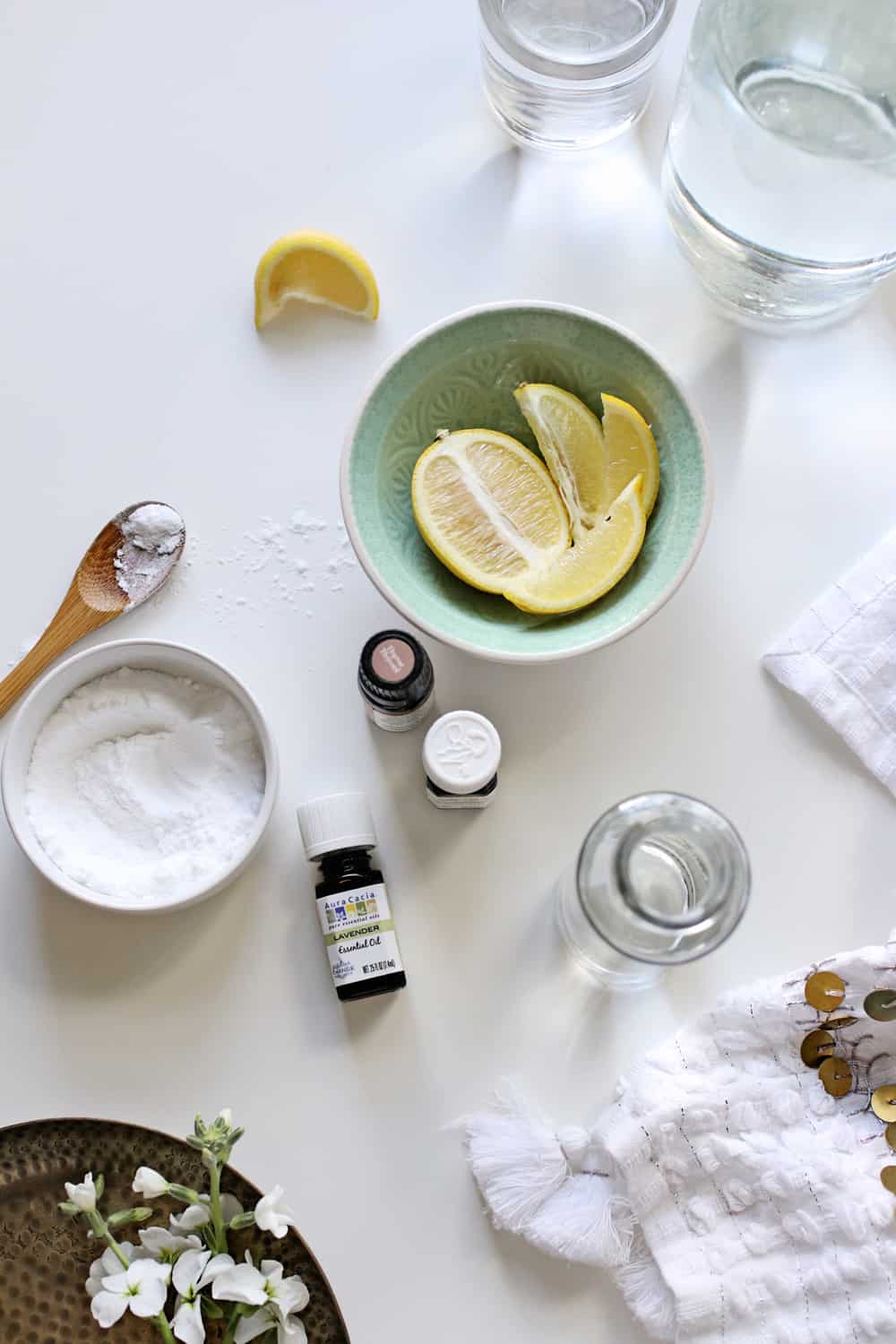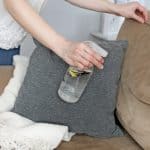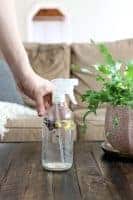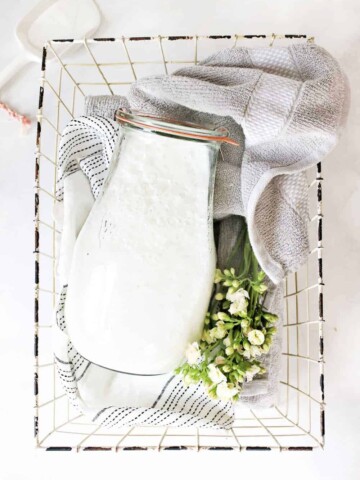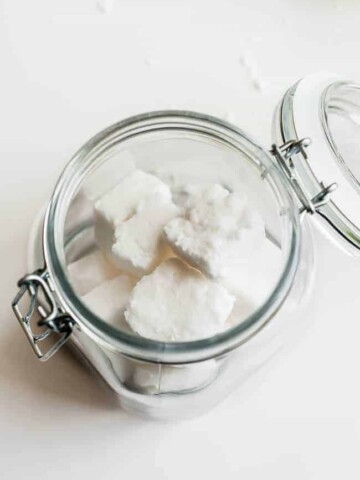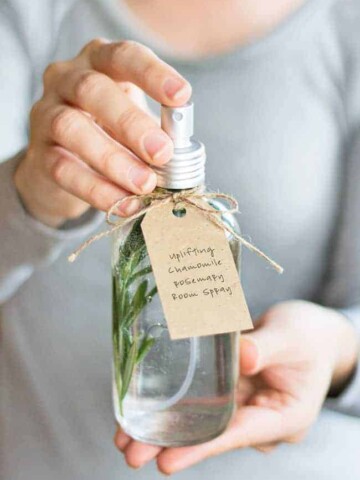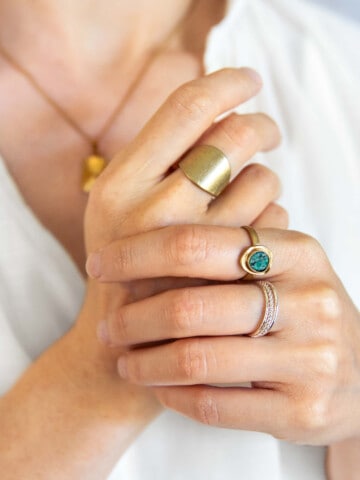I have always felt like a child trapped in a much older person’s body. That is until I got a dog. As I’m walking out of the store with every cleaning product known to man, it hit me: only an adult would spend $90 to remove pet stains from a car seat. And boom! It happened.
While my pre-dog self would never have contemplated buying upholstery cleaner, this new grown-up me actually makes her own and loves it. Not only does it clean sofa cushions, car seats, even rugs—it only costs a few bucks to make, dries quickly, and deodorizes just like the expensive stuff.
Plus, it’s 100% nontoxic, so you can spray it around pets and kiddos alike. And, let's be honest, if you live with either, you're going to need a good stain treater at some point.
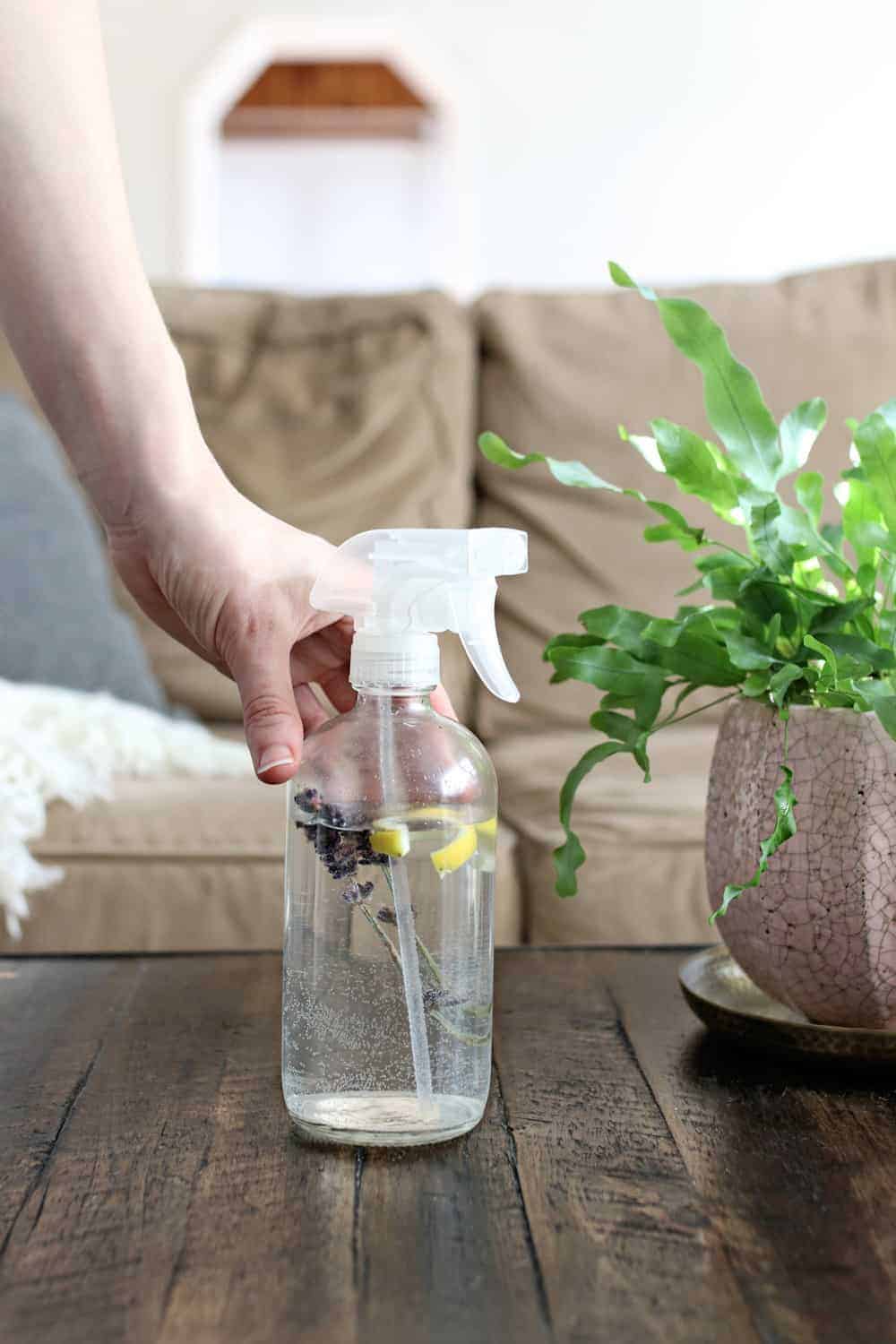
How to Make Upholstery Spray
With only four ingredients, chances are you already have everything you need to make this upholstery cleaner. Mildly acidic white vinegar dissolves dirt and gunk in fabric, and it acts as a natural deodorizer, absorbing odors instead of covering them up.
Rubbing alcohol helps kill germs, and essential oils add a nice, fresh scent. You can water it down for a gentle clean or use it full-up to spot treat tough stains.
Spray liberally on dirty upholstery and scrub using an old rag. Or lightly spritz on curtains, rugs, and furniture to quickly get rid of smells.
<span data-mce-type="bookmark" style="display: inline-block; width: 0px; overflow: hidden; line-height: 0;" class="mce_SELRES_start"></span>Thanks to the rubbing alcohol, this spray dries super fast. Just be forewarned—it can smell pretty strong in enclosed spaces, so turn on a fan or crack a window if you find it overpowering.
But once it dries, it’s odor-free, and you’re just left with the fresh scent of the oils and citrus peel. Although I have used it on everything from chairs to curtains without any issues, I highly recommend doing a quick spot test before spraying on large areas of fabric.
As an added bonus, this makes an awesome all-purpose cleaner in a pinch. Whip up a big batch, and stash it around the house to disinfect counters, clean up pet accidents, and shine windows.
And, if you're looking to make even more upgrades in your cleaning routine, check out our favorite natural cleaning recipes.
DIY Upholstery Spray FAQ
Is this DIY upholstery spray recipe safe to use on velvet fabric?
Velvet can be especially hard to clean because of its lush texture, which is also what makes it so appealing in the first place. Unfortunately, if you damage the fibers while cleaning, you can ruin the texture and appearance of velvet upholstery.
Every velvet material can react to cleaning products in a different way. So to start, you'll want to spot test any cleaning solution in an inconspicuous area first, just in case.
Then take a gentle and cautious approach: when using this vinegar spray on velvet, mist the fabric instead of soaking it. Then carefully blot it rather than scrubbing it.
Can I just use baking soda to clean upholstery?
While baking soda makes an excellent deodorizer—just sprinkle on upholstery, let sit for at least 20 minutes, and vacuum—it will only break up light stains on fabric. In other words, it's useful to release odors but less so when it comes to removing stains.
If you're looking to remove stubborn stains and refresh your upholstered furniture, we suggest harnessing the power of the vinegar and rubbing alcohol used in this recipe.
Will vinegar spray make my upholstery smell?
While vinegar does have the antibacterial properties necessary to kill smells, the scent of vinegar itself may give you pause. The good news is that the smell of the vinegar used in this spray dissipates as it dries.
If you're especially averse to the smell of vinegar (or the rubbing alcohol used in this recipe), you can open a window or turn on a fan to dilute the scent a bit. But since this spray dries odor-free, you'll just be left with the fresh and clean scent of the lavender essential oil and citrus peel once the fabric is dry.
Can I use different essential oils to add scent to this upholstery cleaner?
Yes, if you'd like to play up the citrus scent of this recipe even more, you can substitute the lavender essential oil for sweet orange essential oil. Or you could opt for a mix of sweet orange oil and rosemary oil—15 drops of sweet orange oil and 5 drops of rosemary oil should do the trick.
How should I prep my upholstered furniture before stain removal and cleaning?
If you're dealing with a fresh stain, you'll want to blot the stain and remove any liquid or debris—preferably as soon as it happens, because lapsed time is not your friend when it comes to stain removal. The longer a stain sits, the harder it is to remove.
Once you've soaked up as much of the stain as possible, you're ready to spray the cleaning solution on the fabric and gently scrub with a clean rag.
If you're working on an older, set-in stain or just trying to refresh older upholstery, take the time to vacuum the fabric to remove built-up dirt and debris before applying the spray.
Upholstery Cleaner and Deodorizer
Equipment
- 16 ounce spray bottle
- Funnel
Materials
- ½ cup white vinegar
- ½ cup rubbing alcohol
- 1 cup filtered water
- 15 drops lavender essential oil
- Fresh lemon peel and lavender sprigs (optional)
Instructions
- Combine everything in a spray bottle and give it a good shake.
- To use, spray liberally on upholstery and gently scrub with a clean rag. Let dry naturally.
Video
Notes


